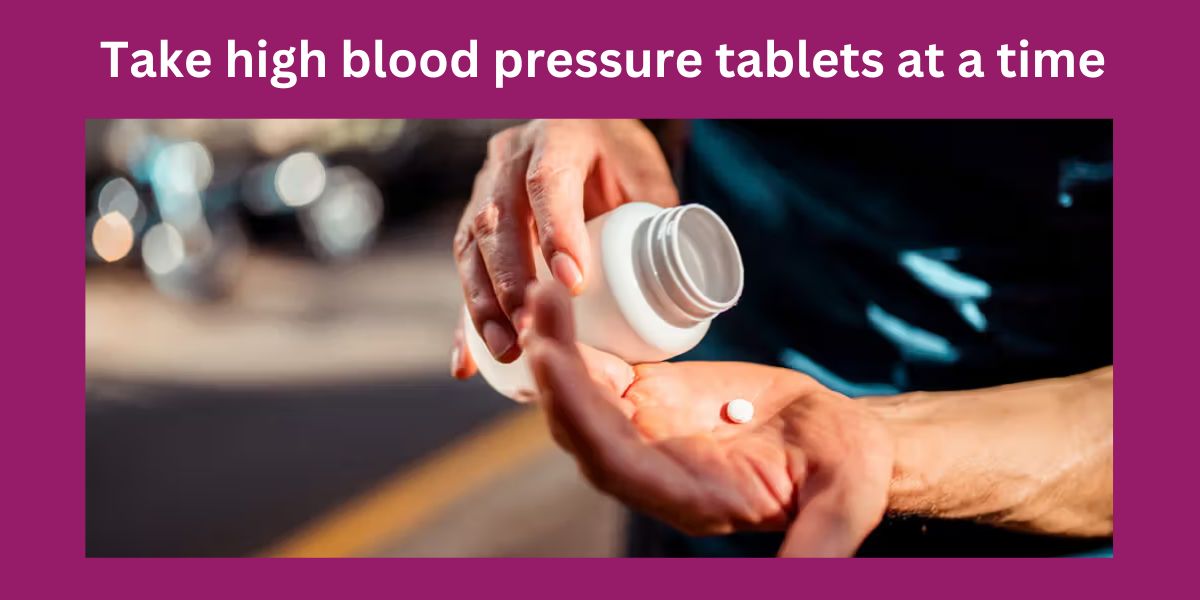High blood pressure, also known as hypertension, is a condition that affects millions of people worldwide. Managing it often involves lifestyle changes and medication. But did you know the time you take your medication could make a significant difference? Scientists now suggest that taking high blood pressure tablets at a time that best suits you might be more effective. Curious to know why? Let’s dive in!
What Is High Blood Pressure?
High blood pressure is when the force of your blood against your artery walls is consistently too high. This can lead to serious health problems, including heart disease and stroke. Think of it like water running through a garden hose. If the pressure is too high, the hose can burst, causing damage—just like high blood pressure can damage your blood vessels over time.
Why Does Timing Matter?
The Science Behind It
Your body operates on a 24-hour cycle known as the circadian rhythm. This internal clock influences everything from your sleep patterns to your blood pressure levels. Blood pressure naturally fluctuates throughout the day, usually dipping at night and rising in the morning. So, when you take your medication can affect how well it controls your blood pressure over the entire day.
Morning vs. Night: Which Is Better?
Some studies suggest that taking blood pressure medication at night might be more effective. Why? Because it could align better with your body’s natural rhythms, providing better blood pressure control during sleep. Other research indicates that the morning might be best for certain types of medication, particularly those that work quickly or need to combat the morning spike in blood pressure.
Personalization Is Key
One Size Doesn’t Fit All
Just like there’s no one-size-fits-all diet or exercise routine, the best time to take your medication might differ from someone else’s. Your lifestyle, work schedule, sleep habits, and specific type of medication all play a role in determining the ideal time to take your blood pressure tablets.
Consult Your Doctor
It’s always a good idea to discuss any changes with your healthcare provider. They can consider your personal health history and provide recommendations tailored to your needs.
Types of Blood Pressure Medications
Diuretics
Diuretics help your kidneys remove sodium and water from your body, which helps to lower blood pressure. Taking these in the morning is often recommended to avoid nighttime bathroom trips.
Beta-Blockers
These reduce your heart rate and the force of your heartbeat, lowering blood pressure. Timing can vary based on the specific medication and your personal needs.
ACE Inhibitors and ARBs
These medications relax your blood vessels, making it easier for your heart to pump blood. Studies suggest taking them at night may offer better protection against cardiovascular events.
Calcium Channel Blockers
These prevent calcium from entering the heart and blood vessel cells, which helps lower blood pressure. The timing of these can be flexible, but it’s best to follow your doctor’s advice.
How to Decide the Best Time for You
Track Your Blood Pressure
Keeping a log of your blood pressure readings at different times of the day can provide valuable insights. Share this information with your doctor to help determine the optimal timing for your medication.
Consider Your Routine
Are you an early bird or a night owl? Do you have a consistent schedule, or does it vary? Your daily routine can influence the best time for you to take your medication.
The Role of Lifestyle in Blood Pressure Management
Diet Matters
What you eat can significantly impact your blood pressure. Foods high in salt, fat, and sugar can elevate your levels, while a diet rich in fruits, vegetables, whole grains, and lean proteins can help lower it.
Exercise Regularly
Physical activity is one of the most effective ways to lower blood pressure. Aim for at least 150 minutes of moderate-intensity exercise per week.
Manage Stress
Chronic stress can contribute to high blood pressure. Techniques like deep breathing, meditation, and yoga can help manage stress and improve overall heart health.
Common Myths About Blood Pressure Medication Timing
Myth 1: It Doesn’t Matter When You Take Your Medication
Many people believe that the timing of their medication doesn’t matter, as long as they take it daily. However, as we’ve discussed, timing can influence how effectively your medication controls your blood pressure.
Myth 2: Morning Is Always Best
While some medications are best taken in the morning, this isn’t a hard and fast rule for all blood pressure tablets. Personalization is key.
Myth 3: You Should Take All Your Medications at the Same Time
If you’re on multiple medications, your doctor might recommend taking them at different times to maximize their effectiveness and minimize side effects.
Potential Risks of Not Timing Your Medication Correctly
Reduced Effectiveness
Taking your medication at a suboptimal time could mean it doesn’t work as well, leaving your blood pressure higher than it should be.
Increased Side Effects
Some medications can cause side effects if not taken correctly. For example, taking a diuretic at night might cause frequent urination, disrupting your sleep.
Higher Risk of Cardiovascular Events
Poorly controlled blood pressure increases the risk of heart attacks and strokes. Optimizing the timing of your medication can help lower this risk.
How Technology Can Help
Blood Pressure Monitors
Home blood pressure monitors allow you to track your readings at various times, providing data to help you and your doctor make informed decisions.
Medication Reminder Apps
These apps can remind you when to take your medication, ensuring you don’t miss a dose or take it at the wrong time.
Final Thoughts
Managing high blood pressure isn’t just about the medication you take—it’s about when you take it too. While the science is still evolving, there’s growing evidence that timing can make a difference. By working with your healthcare provider to determine the best time to take your medication, you can take a proactive step towards better blood pressure control and overall health. Remember, it’s your health journey, and you have the power to make it as smooth as possible!
Conclusion
Timing your blood pressure medication may seem like a small detail, but it can have a big impact on your health. By understanding your body’s natural rhythms, consulting with your doctor, and paying attention to your lifestyle, you can find the optimal time to take your medication and keep your blood pressure in check. So, next time you pop that pill, think about when you’re taking it—it might just make all the difference!
FAQs
1. Can I change the time I take my blood pressure medication on my own?
It’s best to consult your doctor before making any changes to your medication schedule. They can help determine the best time based on your specific medication and health needs.
2. What if I miss a dose of my blood pressure medication?
If you miss a dose, take it as soon as you remember, unless it’s almost time for your next dose. Never double up on doses. Always follow your doctor’s advice in these situations.
3. How do I know if I’m taking my medication at the best time?
Regular blood pressure monitoring and discussions with your healthcare provider can help determine if your current timing is optimal.
4. Is it safe to take blood pressure medication at night?
For some people and certain medications, nighttime might be ideal. However, this is not universal. Always check with your doctor before making any changes.
5. Can my routine affect my blood pressure medication’s effectiveness?
Yes, factors like diet, exercise, sleep patterns, and stress levels can all impact how well your medication works. Discuss any lifestyle changes with your doctor to ensure they support your blood pressure management plan.










